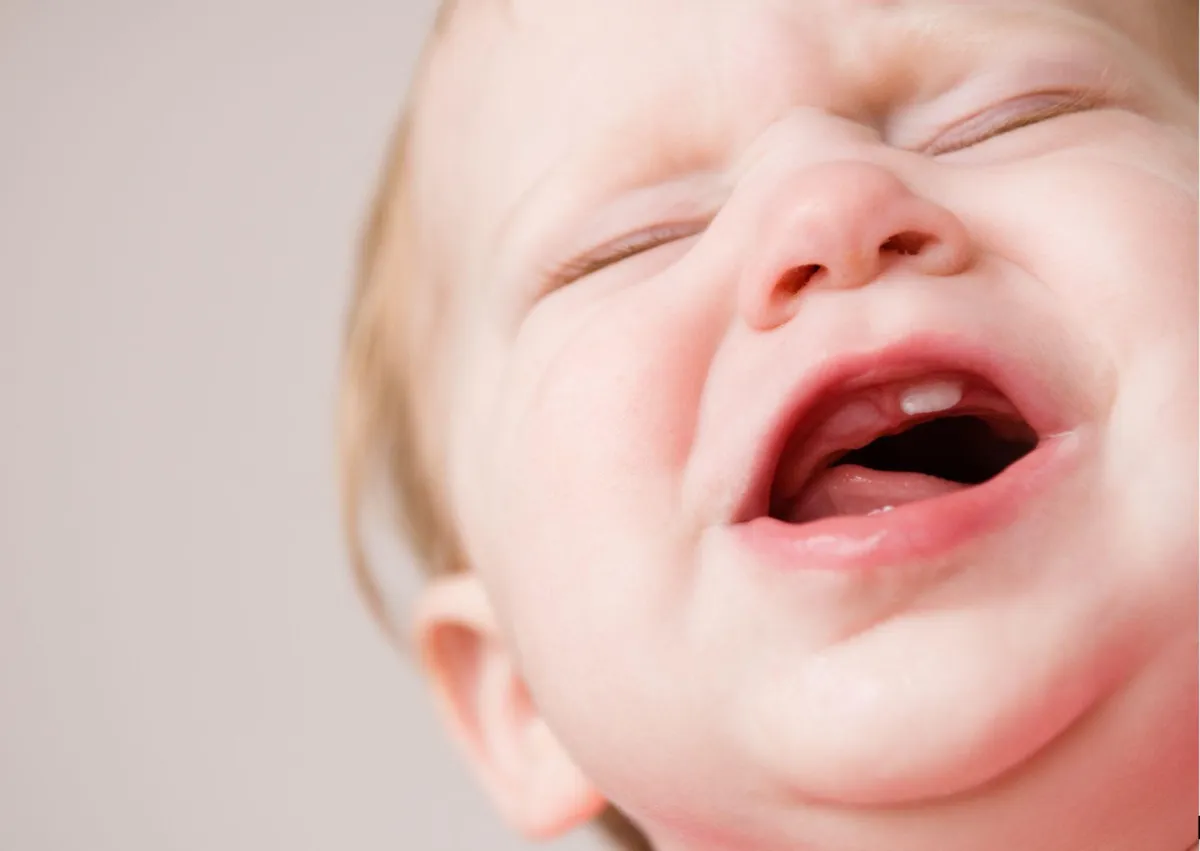
Is Teething Why My Baby Won’t Sleep?

If your baby suddenly starts waking more, refusing naps, or becomes extra fussy at night, it’s easy to blame teething. Parents frequently report sleep disruptions during tooth eruption: surveys and cohort studies find that many caregivers notice irritability, more night wakings, and difficult bedtimes around the time teeth appear.¹ (PMC)
But the picture is more complicated than “teething = ruined nights.” Large, objective sleep-tracking research using video and actigraphy has recently challenged the assumption that teeth directly cause meaningful changes in infant sleep. A longitudinal study that analyzed many tooth eruptions found no measurable difference in sleep duration or night-waking frequency on teething days compared with non-teething days — even though many parents believed teething was to blame.² (PubMed)
So why the disconnect between what parents observe and what some studies measure? Part of it is timing and biology: gums can be uncomfortable for several days before and after an eruption, and babies have less distraction at night, which makes mild gum pain feel worse when everything’s quiet.³ Parents are also more vigilant during teething windows and may notice normal awakenings more readily — a form of confirmation bias.⁴ (Nanit)
Here are a few helpful tips:
Start with comfort, not meds: try chilled (not frozen) teething rings, gentle gum massage, or a clean cool washcloth to chew on before bedtime. These nonpharmacologic measures are safe and often effective.
Use regular sleep hygiene: keep the bedtime routine consistent, dim lights, and avoid extra stimulation — these strategies reduce night wakings from many causes, teething included.⁵
Treat pain when necessary: if your baby is clearly in pain (refusing feeds, unsoothable crying, high fever is absent), pediatricians sometimes recommend acetaminophen or ibuprofen for short-term relief — follow dosing guidance from your clinician. Avoid topical benzocaine products and homeopathic teething tablets, which are not recommended.
Watch for red flags: true high fever, persistent diarrhea, or severe lethargy aren’t typical teething symptoms and warrant a pediatric check.⁴
Consult a baby sleep specialist if your baby continues waking in the night and you have tried the steps above.
Occasional rough nights are normal. Even if teething isn’t the root cause of every wake-up, it coincides with the age when babies hit many developmental milestones (rolling, crawling, object permanence) that do disrupt sleep. Treat teething as one possible contributor, use comfort-first strategies, and lean on consistent sleep routines and safe pain relief when needed. If sleep disruption is severe or prolonged, check in with your pediatrician — they can help rule out other causes and advise on safe, short-term pain management. (AAP Publications)
Every healthy baby can sleep well through the night, so after your pediatrician has confirmed your baby's health, get sleep consultation to learn how to improve your baby's sleep.
Footnotes:
Survey / cohort data on parental reports of teething symptoms (sleep disturbance prevalence).¹ (PMC)
Longitudinal auto-videosomnography study finding no measurable sleep change on teething days.² (PubMed)
Explanations for why discomfort feels worse at night and pre/post eruption timing.³ (Nanit)
Reviews of teething myths, common caregiver beliefs, and recommended red-flag guidance.⁴ (PMC)
Practical sleep-hygiene and clinical guidance for managing pain and sleep disturbances.⁵ (AAP Publications)
